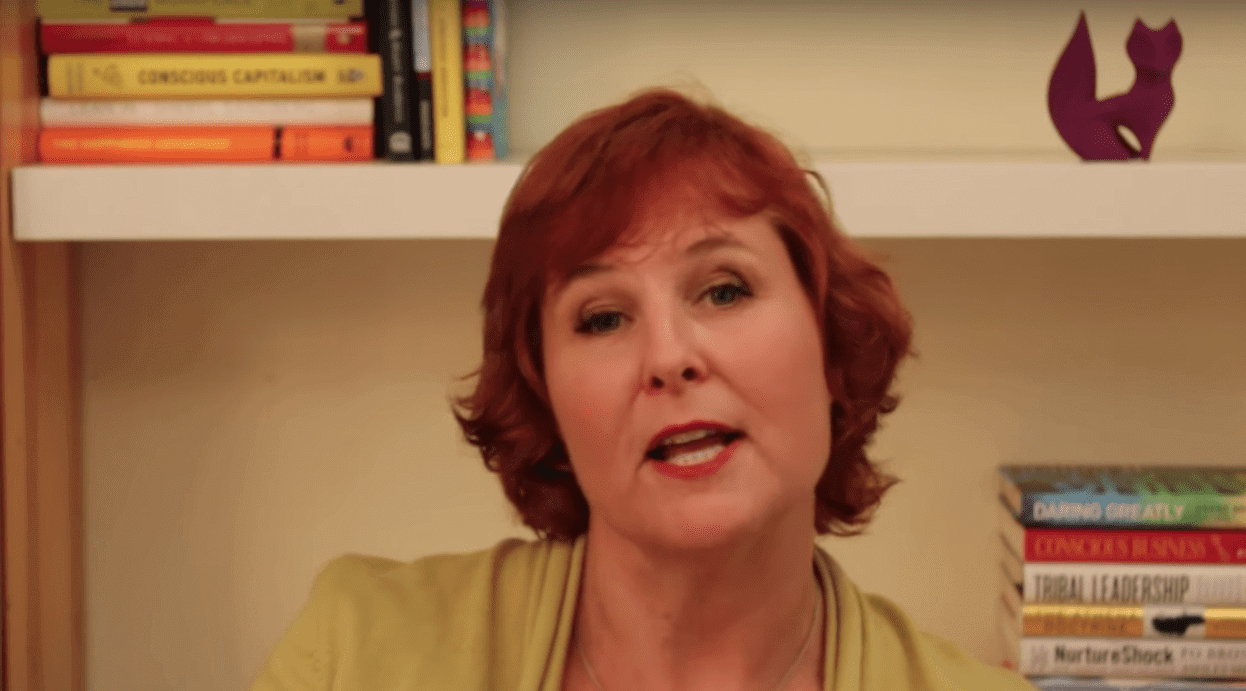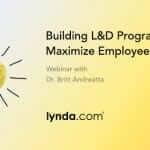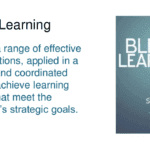Why employee engagement matters

I also recommend:
- Gallup's report The State of the American Workplace
- Gallup's report State of the Global Workplace
- BlessingWhite's video on Employee Engagement
- Dan Pink's video on What Motivates Us
Transcript:
Hi, I'm Dr. Britt Andreatta. I want to talk to you today about employee engagement.
Engagement is the new darling of the business world, because all the studies are showing it drives all the things that matter in business. Customer satisfaction, productivity of your people, retention of your top talent. All kinds of good things happen when you've got an engaged work force.
I want to talk to you about how to do that. Also, think about how engaged you are. First let's have a definition. Engagement is how much people are passionate about the work they do, and how committed they are with the organization they work for.
It's really a passion piece. It's that ability to go above and beyond the expectations of the job because you've really invested in it. A couple of questions I would asks you are; When was the last time you were engaged? What was the best job you ever had, and what did you love about it? Or, who was the best boss you've ever had? What was that relationship like? What did that bring out in you? Did it help you get more engaged?
Another thing to think about is how humans are motivated. There is a lot of research that's been done on what motivates us people. What they have found is it's three key things. The first is autonomy. That's we're motivated by the opportunity to be self-directed, that we have some control over our work environment.
The second thing is mastery. We have the opportunity to grow and get better at something. There is innate drive that all humans have to want to improve.
The third thing is purpose, that we want to contribute to something meaningful. It's either personally meaningful for us, or we believe it's meaningful in society, and that it makes a difference in the world.
Mastery, autonomy, and purpose are things to think about. Do you feel like you have those in your job, and can you give those to other people?
How do we measure engagement? There are a few companies out there that have surveys you can take. The kinds of questions they'll ask are things like, "Are you proud to work for this company on a scale of one to five? Have you ever thought about leaving this company? Are you motivated here doing this job than you might be at another company in a similar role? Would you recommend this company as a great place to work?"
Gallop is a national organization who is doing all kinds of big studies. They actually have a few reports out there that are worth looking at. The most recent report is The State of the American Workplace.
They talked about three levels of engagement.
You've got the engaged worker. This represents about 30 percent of the workforce. They feel a profound connection to their company. They work with passion. They really drive innovation and move the organization forward.
Then, you've got the not engaged. These folks are sleep walking through their day. They punch the clock. They get their job done, but they're certainly not bringing energy or innovation to what they do.
Then you've got the actively disengaged. The actively disengaged is about 20 percent of the population. They are not only disengaged. They're seriously unhappy, and they're bringing that cynicism and negativity to work in a way that harms the other employees and brings the rest of the team down.
What Gallop has estimated is that 50 percent of the workforce is in that not engaged category. They're not turned on, they're not negative, but they're waiting to have the fire lit under them. That's what we want to do. It's increase the percentage of people that are engaged in your office.
Studies show engagement is tied to several great things. Absentees go down, health incidents go down, your turn-over goes down, shrinkage or people stealing the office products goes down.
Safety problems go down. All kinds of things go down. The bad things go down when people are engaged. The good stuff goes up. You have higher customer satisfaction, higher productivity, higher profitability in your company.
Another book is talking a little bit more about this, "The Firms of Endearment." It's a great book. It highlights companies that are engaging all of these practices and doing it in a way that shows the ROI. If you want to learn how companies are doing it, you can have the book, "The Firms of Endearment," and also, "We First" is another one I recommend.
Let me talk to you if you're in a leadership position. If you're a manager of people, you own an organization, you're a parent, a teacher, health care worker, you have the opportunity to help other people rise to their potential and increase their engagement.
Let's talk about how you do that. First, you have to help yourself. How engaged are you? How passionate are you about what you do? Do you feel that commitment to the organization that you work with or for?
First, focus on yourself and get your engagement up. If you're not engaged, it's really hard to leave other people there. Some things you can do is work with a coach and start to get clear about what's not working and what needs to work so you are lit up yourself.
Once you are, you can start to figure out how to light up your people. That first starts with some conversations. Do you know what matters to them? Do you know what their passionate about? Do you know what they love about their job?
I've consultant with some organizations when we interviewed people on a team. We found out that bob was really passionate about X, and Sally was really passionate about Y, but the things they were passionate about was in the other person's job.
We just moved the pieces around and we swapped them and all of a sudden both of them are lit up. They're getting to work on what they're passionate about. Those conversations make a difference.
The other thing you can do is find out if you're offering enough opportunities for autonomy, giving people opportunity to be self directed. Do they have opportunities for mastery? The ability to grow and develop.
Do you have an opportunity for them to have something meaningful? Meaningful is a really personal discussion. What's meaningful to me, might be really different then what's meaningful to you. Again, you've got to have those conversations and find out what meaningful is to them.
Make sure they see a direct connection between what they do and the thing that's meaningful to them. Those are some tips you can try, but the most important thing is to try to get engagement up, because it's going to drive all kinds of good stuff, and it's definitely going to leed to helping people to rise to their potential.
Related Blogs
JOIN OUR COMMUNITY
Be the first to know of Dr. Britt Andreatta's latest news and research.




